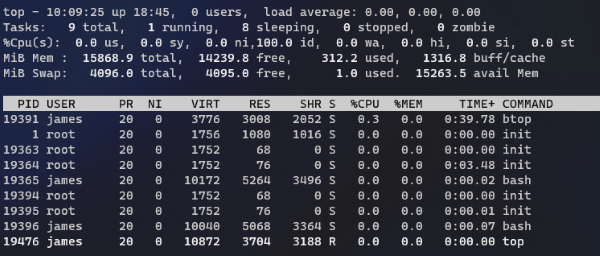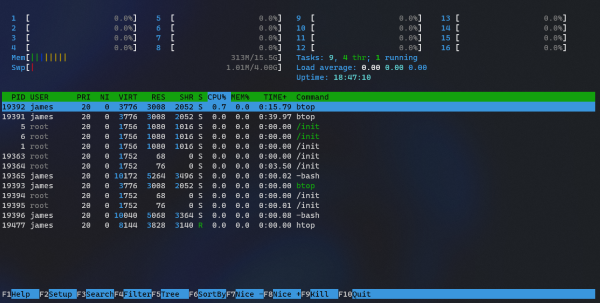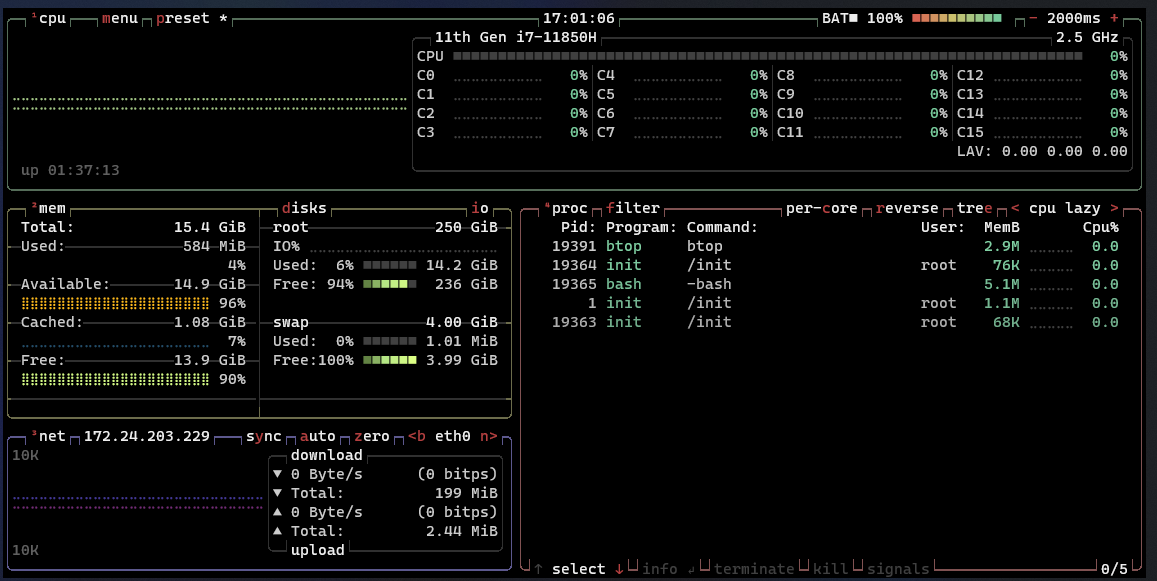My go-to command line Linux tools for WSL

I've started using WSL pretty regularly now that our development process has gone cross-platform by default. I still love developing on Windows, and even though my entire tool-chain is available on a Mac, I prefer the customisation of both hardware and software that comes with the PC platform.
That being said, i also love linux, and would use it daily if it fit into our corporate environment. So, I use WSL and al it's glory to back up my dev environment. It's pretty great and fits into my existing Windows dev environment well now.
So, here are a couple of awesome command line tools I use regularly, and how to install them.
I'll be adding to this list form time to time so come back if you'd like to see if I replace these tools with anything new from time to time.
- nala - front-end for apt
- duf - Disk Filesystem utility
- btop - system resource monitor
1) nala
"nala" is an alternative front end to APT (libapt-pkg) that has really great interface and command line gui, including progress graphs, tables etc. It lso supports paralel downloads and filters out the guf messages that perhaps don't help all that much - especially helpful for users new to Linux and apt that don't understand the complexities and nuances of apt.

Installation
Installation is different depending on the distro and version of Linux you're running - you require Ubuntu 21+ for example, <= 18 is not supported.
Head over to the Volian WIKI for installation instructions.
Alternatively, see the Volian GitLab Releases page for downloads.
2) duf
"duf" is a visually updated version of the "df" (Disk Filesystem) command and checks disk usage and statistics.
Installation
If you're using Ubuntu (or any Debian based distro) you can install duf by downloading the .deb package directly from GitHub using wget:
* Be sure to check for the latest version in the releases page first - just replace the URL below with the latest.
wget https://github.com/muesli/duf/releases/download/v0.8.1/duf_0.8.1_linux_amd64.debThen, install the package with dpkg:
sudo dpkg -i duf_0.8.1_linux_amd64.debIf you'd like to remove the downloaded package after successful install, simply run:rm -rf duf_0.8.1_linux_amd64.deb
3) btop++
You'll probably know top as a useful system resource monitoring tool for the command line in Linux.

You may even use htop

Check out the btop++ repository on GitHub:
Installation
To install btop++ from the command line, simply download the latest version from the GitHub repo (be sure to check for the latest release from the release page).
You want the _x64_64_linux_musl version...
wget https://github.com/aristocratos/btop/releases/download/v1.2.8/btop-x86_64-linux-musl.tbzThen, unzip the bin/btop folder from the archive to a new folder under `/usr/local/bin:
sudo tar xf btop-x86_64-linux-musl.tbz -C /usr/local bin/btopYou can now simply run btop to see your new system monitor. Remember it's ctrl+c to exit.


